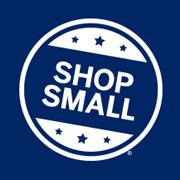History
First observed in the United States on November 27, 2010, Small Business Saturday is a counterpart to Black Friday and Cyber Monday, which feature big box retail and e-commerce stores respectively. By contrast, Small Business Saturday encourages holiday shoppers to patronize brick and mortar businesses that are small and local. Small Business Saturday is a registered trademark of American Express. [1]
The first event was created by American Express, in partnership with the non-profit National Trust for Historic Preservation, Boston Mayor Thomas M. Menino, and Roslindale Village Main Street. In 2010, the holiday was promoted by American Express via a nationwide radio and television advertising campaign. That year Amex bought advertising inventory on Facebook, which it in turn gave to its small merchant account holders, [2] and also gave rebates to new customers to promote the event. [3] [4]
American Express publicized the initiative using social media, advertising, and public relations. Many local politicians and small business groups in the United States issued proclamations concerning the campaign, [5] [6] which generated more than one million Facebook "like" registrations and nearly 30,000 tweets under the Twitter hashtags #smallbusinesssaturday and #smallbizsaturday. [7]
This page is based on this
Wikipedia article Text is available under the
CC BY-SA 4.0 license; additional terms may apply.
Images, videos and audio are available under their respective licenses.
